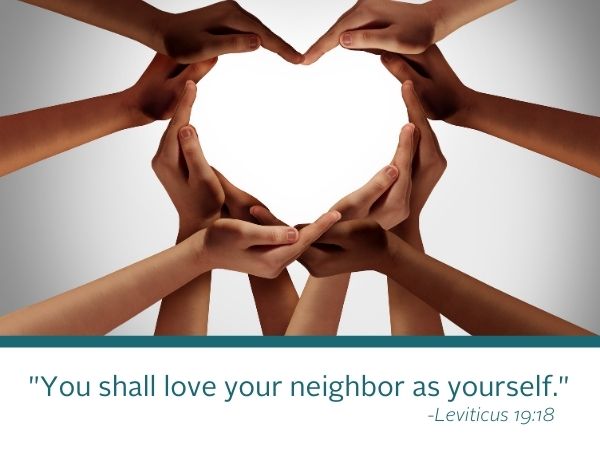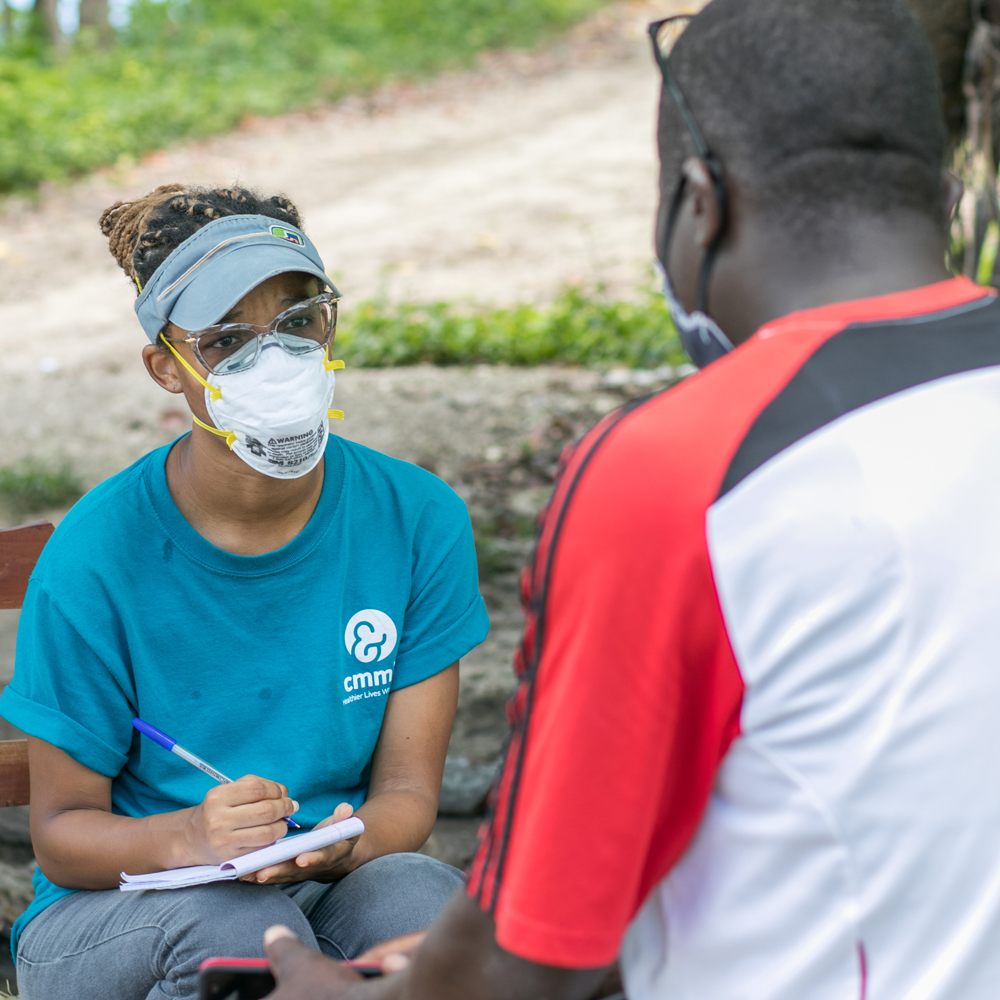To Love God Is to Love Your Neighbor — Your Weekly Reflection from CMMB

Over the past few weeks, Jesus has been in conversations with religious leaders. Last week, the Pharisees and the Herodians attempted to trick Jesus with a question about taxes. Today’s reading picks up during the same conversation, after Jesus has just answered a second question about the resurrection.
The third question posed to Jesus is the focus of today’s reflection. A Pharisees asks Jesus to rule on a highly debated topic in Jewish law—the ranking of the commandments. In doing so, they ask Jesus to identify the most important law.
Instead of identifying a single law, Jesus suggests that all of the commandments can be summarized in two: To love God and to love your neighbor. Jesus explains, “The whole law and the prophets depend on these two commandments.” Jesus’ response is simple, but it draws an important connection. When we show love for our neighbor we show love for God.
Today, as the world continues to struggle with a crisis as great as COVID-19, showing up for our neighbors with love, respect, and support has never been more important.
At CMMB, we’ve launched an emergency response to COVID-19 that’s driven by this very principle. Right now, Haiti is the leader among Caribbean countries in the number of confirmed cases. The Bishop Joseph Sullivan Center for Health in southeast Haiti is at the forefront of our response efforts. The 50-bed facility serves a community of over 138,000 people, who are extremely susceptible to the pandemic because of factors like food insecurity, scarce health care resources, and more.
The U.S. and other developed countries around the world saw what happened when critical resources like PPE and ventilators were no longer available. Seven months later, countries like Haiti are left fearing the same.
“Our fear is everyone’s fear,” said Dr. Laguerre, the hospital director at the Bishop Joseph Sullivan Hospital.
In Peru, the situation is even more alarming. Now considered one of the world’s worst coronavirus hotspots, the crisis is disproportionately affecting the country’s most vulnerable. In the communities we serve, community health workers have become vital to our response. Using telehealth and tele-counseling, they’re educating households on how to protect themselves from the virus. Similar efforts are in effect in Zambia, Kenya, and South Sudan.
As we begin our week, let us remember that our neighbors are not defined by the boundaries within which we live. As a global community, it is our duty to support those in need, regardless of the oceans that separate us.
We invite you to learn more about how we’re helping our neighbors in all the countries we serve on our emergency response resource page.
In grace and peace,
CMMB
